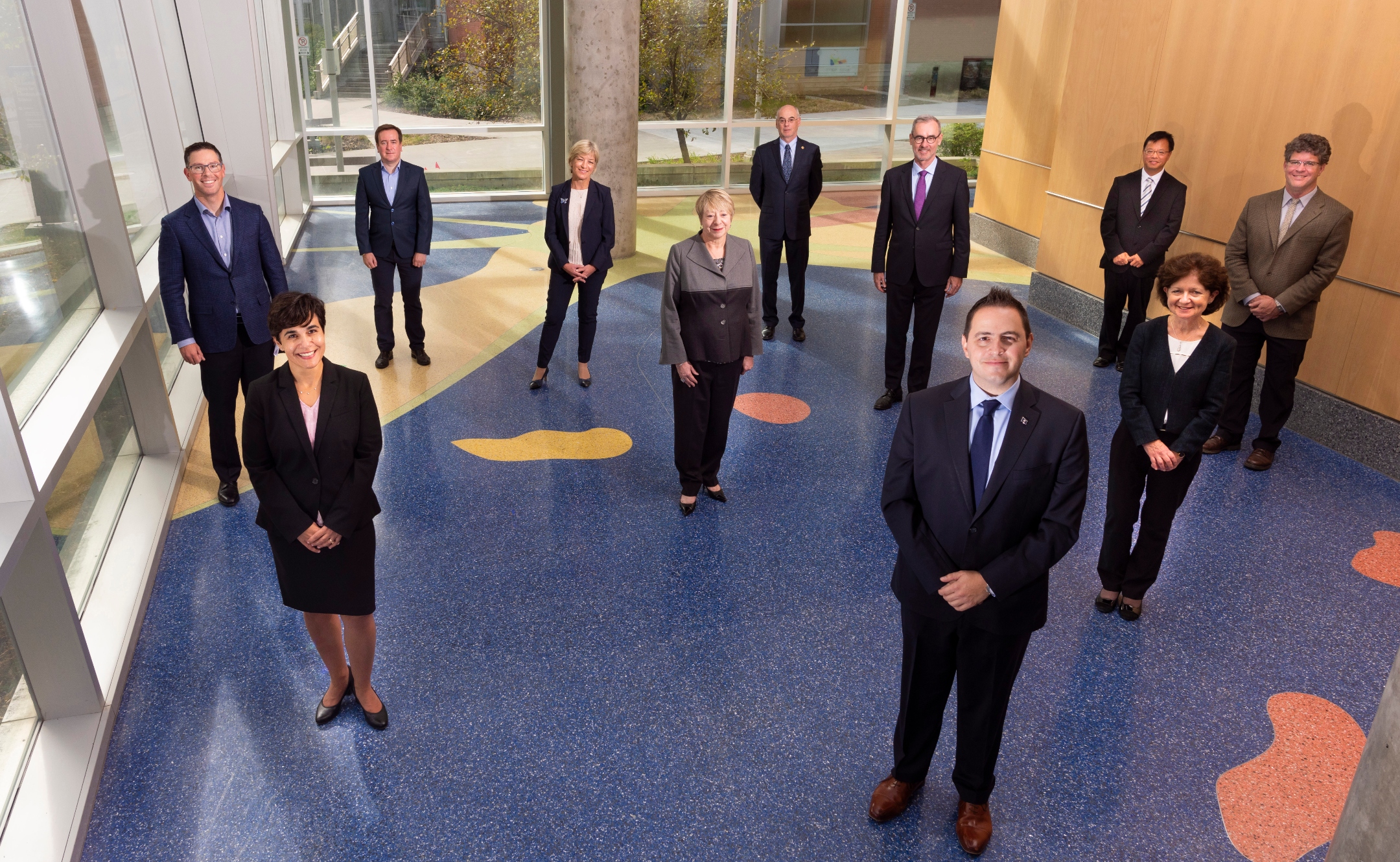A researcher at the University of Alberta who developed an algorithm that can predict a mountain pine beetle outbreak seven years in advance is co-leading a team now homing in on the algorithm that can predict how COVID-19 spreads in a population.
"Of course, the mountain pine beetle is very different from COVID-19, but in terms of the dynamics and what you would put in a model, it's not that different," said Mark Lewis, professor in the Faculty of Science.
"We're building on that tradition of quantitative modelling of disease, but we're using this new set of methods-machine learning-where the U of A is really a world leader."
Lewis and fellow mathematical biologist Hao Wang, computing science professor and machine learning expert Russ Greiner, biologist and data science expert David Wishart, post-doctoral researcher Pouria Ramazi and partners from Alberta Health make up one of five U of A teams to receive funding from Alberta Innovates to fight COVID-19.
The team was already well into an international study to create an algorithm that can predict reported COVID-19 cases two weeks into the future in each of the more than 3,000 counties in the United States, when the Alberta government asked whether they could tweak that research for the province.
Lewis explained that a wide range of demographic and sociological data-age, median income, hospitalizations, even policies-has all been fed into the machine learning algorithm.
"These kinds of algorithms just feed on data," he said. "It doesn't matter if you know whether it's relevant or not; you just put it in there and then you train it and let the algorithm decide."
Lewis, who has built on the U of A's pine beetle renown by using computer modelling to predict pine beetle infestations years in advance, said his team's initial goal was to make predictions a month into the future as a way to help inform policy.
"We want to be able to predict what might happen in the province if we change the policy, using data from all over North America where people have made similar changes to policy," he said.
Beyond helping lawmakers and administrators create the right policy, Lewis said this work might also predict potential stresses on the health-care system.
"We've been very fortunate so far that we haven't had the kinds of issues that they've had in places like Italy and Spain," he said. "Obviously, if things are changing quickly, then being able to make a prediction-even a month into the future as to what one might expect-will allow us to prepare without being caught blindsided."
The five projects announced bring the U of A's total number of projects involving COVID-19 research to 75.
"Providing innovative solutions to the challenges we face as a province is core to what we do at the University of Alberta," said U of A president Bill Flanagan.
"This critical funding from the Government of Alberta and Alberta Innovates will help our researchers carry out their work in the rapid detection, management and reduction of the transmission of COVID-19."
U of A projects receiving provincial funding
Jie Chen, Faculty of Engineering
Development and clinical validation of a rapid antibody detection device for COVID-19
$304,200
Andrei Drabovich, Faculty of Medicine & Dentistry
Rational design and standardization of serology diagnostics using immunoaffinity-targeted proteomics assays
$182,098
Matthias Hoben, Faculty of Nursing
COVID-19 and caregivers of assisted living residents: their experiences and support needs (COVCARES-AB/BC)
$328,376
Mark Lewis, Faculty of Science
Predicting and managing COVID-19 pandemic dynamics using machine learning
$220,545 (supported through the Pfizer Alberta Collaboration in Health)
Puneeta Tandon, Faculty of Medicine & Dentistry
Reconnecting vulnerable outpatients with multidisciplinary care-an RCT assessing online programming in the time of COVID-19
$326,297
